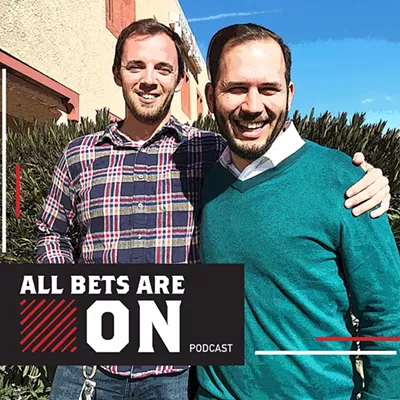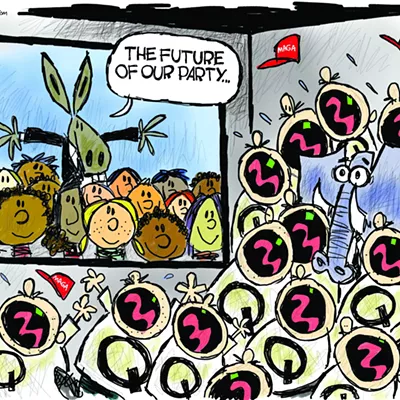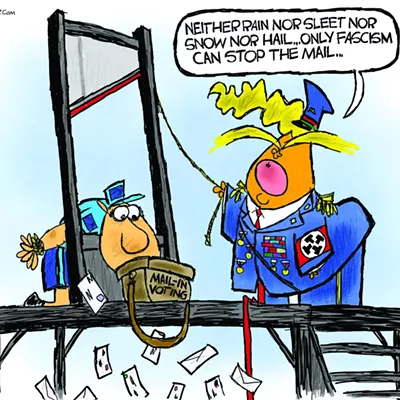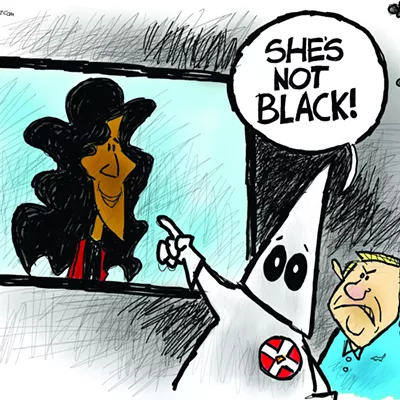Friday, May 17, 2019
Steve Farley Advocates For Turning Schools Into Community Schools
When the New York Times carried a story about the progress students have been making in the "I Promise School" started by LeBron James in Cleveland, I put the article in my "Post about it when you have a chance" pile. Two weeks later, before I wrote about it myself, mayoral candidate Steve Farley used LeBron's school as a starting point for one on his Ideas For Tucson emails, titled "Turning our public schools into community schools." The email began,
LeBron James has rightfully received a lot of publicity for the work he is supporting at previously failing Cleveland public schools — work that is producing astonishing results.In the email and on his website's Ideas page, Farley embraces the idea of turning schools into places where families can benefit along with their children, places which provide "GED classes, basic healthcare, low income bus passes, use of the computer lab, career counseling, microlending, and job training for parents as well as kids." The city, he wrote, can be a partner in creating and implementing a community school approach to education.
Farley got it exactly right.
Before I go further, I need to say, this isn't an endorsement of Farley's candidacy. Both he and Regina Romero are strong candidates. I definitely want one of them as mayor, but honestly, I'm not sure which of them would do a better job. What I'm endorsing is the idea of forging a partnership between school districts and city government to bring the community school idea to Tucson. Farley deserves credit for featuring that idea in his campaign.
People in city government like to say they are strong advocates for local public schools, but too often, city governments and school districts remain separate entities with too little overlap.
The community school concept is a way to bridge the gap between the two institutions. City government is ideally situated to coordinate a coalition between a school district and governmental social services, businesses, nonprofit organizations and volunteers. A program can be ramped up gradually, school by school, service by service without incurring large costs for the city or the school district. In other words, it's doable, even with a cash-strapped district and a city on a tight budget. And the payoff can be significant.
Bringing services for underserved families inside the school walls makes those services more accessible to families and helps parents buy into their children's educations. When individual parents become involved in their children's schools, when they become members of the school family, the parents benefit and their children's chances of succeeding inside and outside the classroom improve.
I can't think of anything Tucson's city government can do which would be more beneficial to our schools than working with a district to move toward the community school approach.
I know Regina Romero is an advocate for strong public education and she has endorsements from members of the local and statewide educational community, but looking through her platform (It's a good platform, by the way) and reading her emails, I haven't seen concrete ideas for ways city government can have a direct impact on our schools. It would be great if she publicly embraced the community schools idea or something similar.
Tags: Steve Farley , Regina Romero , Tucson mayor , Elections , Community schools , LeBron James , I Promise School , Image



![Image: [Update]: Decision on The Bike Ranch May Be Tabled to Tuesday, July 2](https://media.tucsonweekly.com/tucsonweekly/imager/update-decision-on-the-bike-ranch-may-be-tabled-to-tuesday-july-2/u/r-bigsquare/25080369/bigstock-an-unidentified-biker-heads-up-234325444.webp?cb=1742583980)













